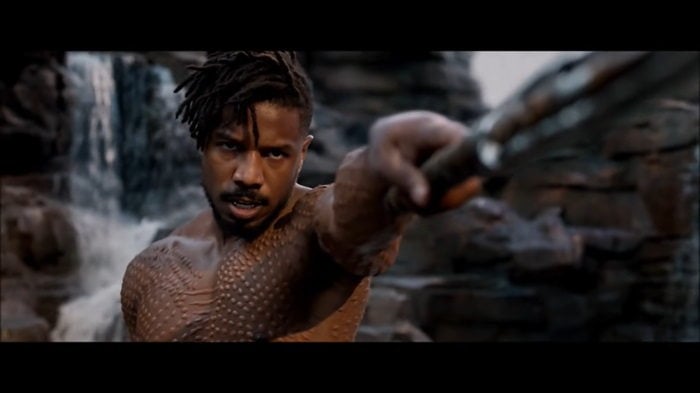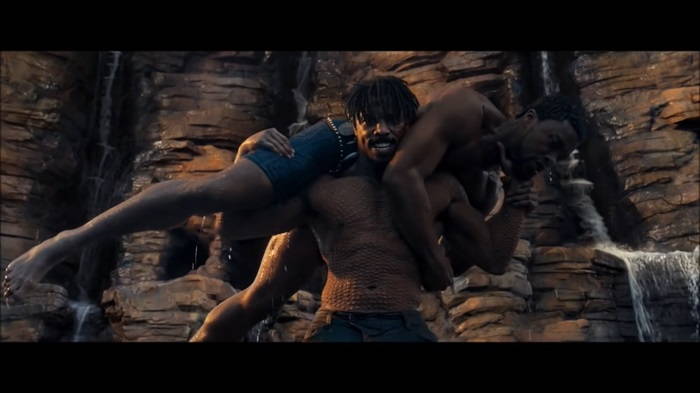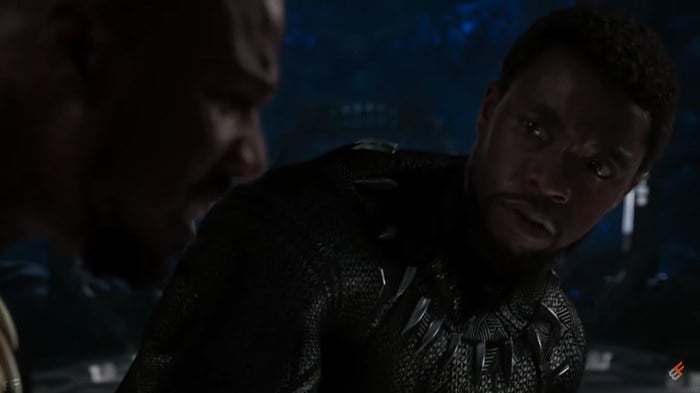Black Panther, directed by Ryan Coogler and released in 2018, is a groundbreaking film within the Marvel Cinematic Universe (MCU). It follows the story of T'Challa, played by Chadwick Boseman, as he returns to the fictional African nation of Wakanda to assume the throne after the death of his father.
Climax: The Battle for Wakanda
The climax of Black Panther unfolds in the heart of Wakanda as T'Challa faces off against Erik Killmonger in a ritual combat that will determine the rightful ruler of the nation. The stakes are high, not just for Wakanda but for the ideologies represented by the two characters. Killmonger, fuelled by a personal vendetta, challenges T'Challa in a physically and emotionally charged battle. The fight scenes are a visual spectacle, showcasing the advanced technology and combat skills unique to Wakanda.
The use of vibranium, Wakanda's prized resource, adds an extra layer of excitement to the confrontation. The metal's versatility, from enhancing T'Challa's suit to being integrated into various weapons, is on full display, highlighting the technological marvels hidden within Wakanda.
Clash of Ideologies

The battle between T'Challa and Killmonger is not just a physical confrontation but a clash of ideologies. Killmonger's desire to use Wakanda's advanced technology to liberate oppressed communities globally is rooted in the injustices he experienced in the United States. This contrasts sharply with T'Challa's initial commitment to keeping Wakanda's technological advancements hidden from the world to protect its people.
The ideological conflict adds depth to the narrative, making the climax more than a mere superhero showdown. It forces the audience to reflect on the moral implications of hoarding advanced resources while others suffer. Killmonger's motivations, driven by a sense of abandonment and a desire to rectify historical wrongs, humanize the character and create a compelling antagonist.
T'Challa's Sacrifice and Resurrection

The turning point of the battle comes when Killmonger throws T'Challa over the waterfall, mirroring an earlier scene in the film. T'Challa's presumed death is a moment of shock and despair, not only for the characters within the narrative but for the audience as well. However, in a twist, T'Challa is revealed to be alive, saved by the intervention of his mother, Queen Ramonda, and his sister, Shuri.
T'Challa's temporary demise and resurrection add an element of sacrifice to the narrative. His willingness to risk everything for the sake of Wakanda's future underscores the depth of his commitment to his people. This plot twist also serves as a moment of triumph, as T'Challa returns with newfound strength and determination to confront Killmonger once again.
Emotional Reckoning: The Truth About Family
As the battle between T'Challa and Killmonger reaches its climax, the emotional reckoning between the two characters takes center stage. It is revealed that Killmonger is T'Challa's cousin, the son of T'Challa's uncle, N'Jobu. The revelation adds a layer of tragedy to the conflict, as it becomes apparent that family ties and the sins of the past are driving the animosity between the two characters.
T'Challa's attempts to reason with Killmonger and reveal the painful truth about their familial connection humanize both characters. It transcends the typical hero-villain dynamic, emphasizing the impact of generational trauma on individuals and societies. The emotional depth of this revelation elevates the film beyond a standard superhero narrative, making the resolution more poignant.
The Tragedy of Killmonger: A Pivotal Decision

The climax reaches its emotional zenith when T'Challa defeats Killmonger in combat. However, instead of choosing to let Killmonger die, T'Challa offers him the chance to live. Killmonger, refusing to be imprisoned, opts for death, delivering a poignant line that resonates long after the film concludes: "Bury me in the ocean with my ancestors who jumped from ships, because they knew death was better than bondage."
Killmonger's tragic end is a culmination of his complex character arc. His motivations, while fueled by anger and a thirst for vengeance, are rooted in a painful history of oppression and systemic injustice. The film doesn't shy away from portraying the consequences of such historical trauma, and Killmonger's fate becomes a symbolic commentary on the cyclical nature of suffering.
The Impactful Decision: T'Challa's Revelation to the World
The ending of Black Panther goes beyond the personal resolution of T'Challa's battle with Killmonger. It sets the stage for a pivotal decision that will reshape Wakanda's future and its role in the world. T'Challa decides to reveal Wakanda's true nature to the world, expressing a commitment to using its resources and knowledge to help others globally.
This decision is a radical departure from Wakanda's traditional stance of isolationism, and it holds significant implications not only for the nation but for the larger MCU. T'Challa's willingness to share Wakanda's advancements challenges the prevailing narrative of superhero secrecy and introduces the idea of a more interconnected and cooperative world.
Cultural and Social Significance: A Celebration of Diversity
Black Panther’s conclusion is not only a resolution of the narrative but also a celebration of cultural and social significance. "Black Panther" is hailed for its representation of African culture, its predominantly Black cast, and its exploration of relevant social and political themes. The character of T'Challa, as portrayed by Chadwick Boseman, becomes a symbol of strength, leadership, and cultural pride. The film's positive reception among audiences globally highlights the universal appeal of diverse storytelling and the importance of representation in mainstream cinema.
Conclusion: A New Era for Wakanda
Black Panther concludes with T'Challa addressing the United Nations, outlining Wakanda's new approach to international relations. The final scenes emphasize themes of unity, collaboration, and the importance of embracing one's cultural heritage while contributing to the progress of the world. T'Challa's leadership style emerges as a blend of tradition and innovation, symbolizing a new era for Wakanda.






